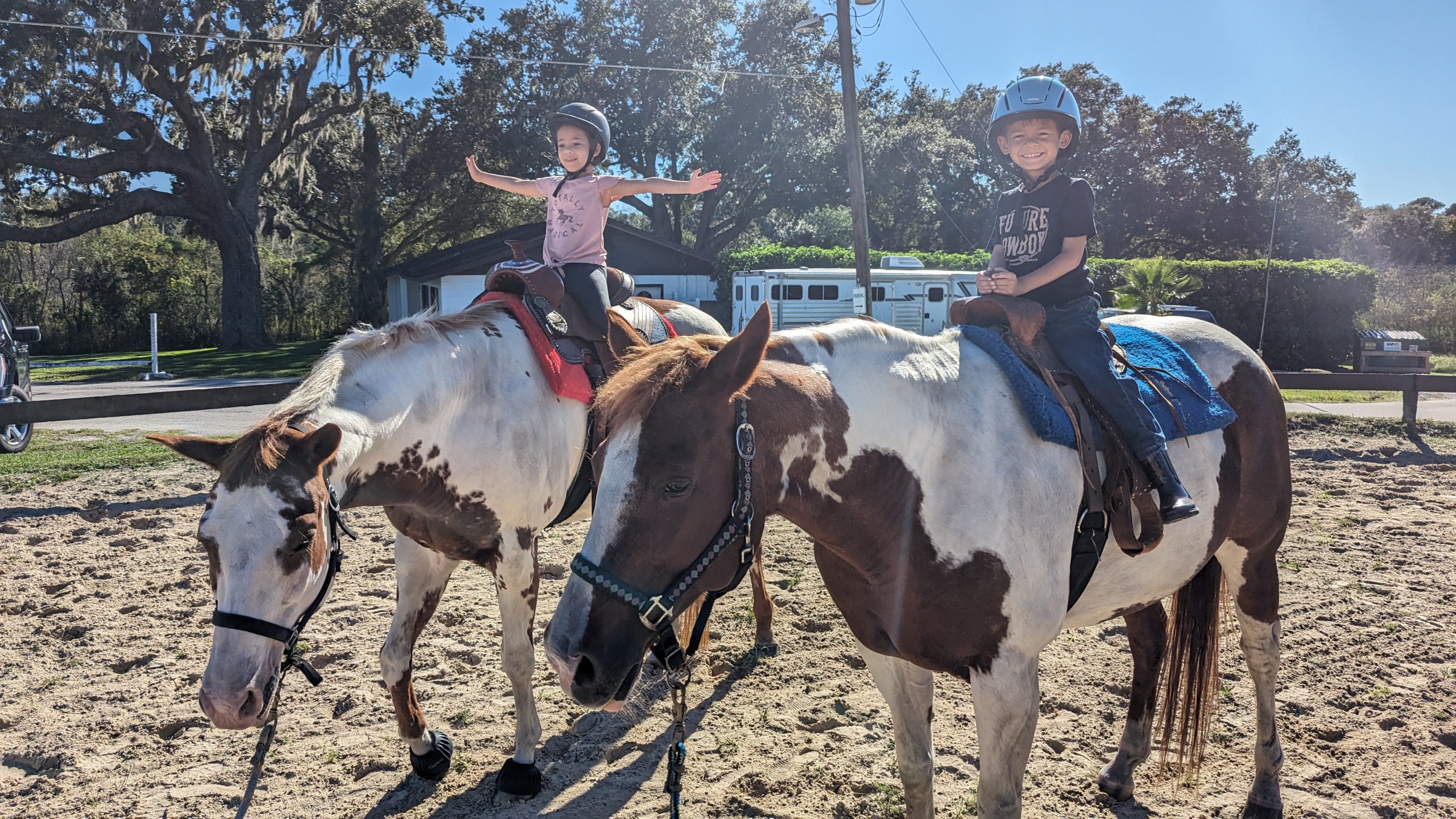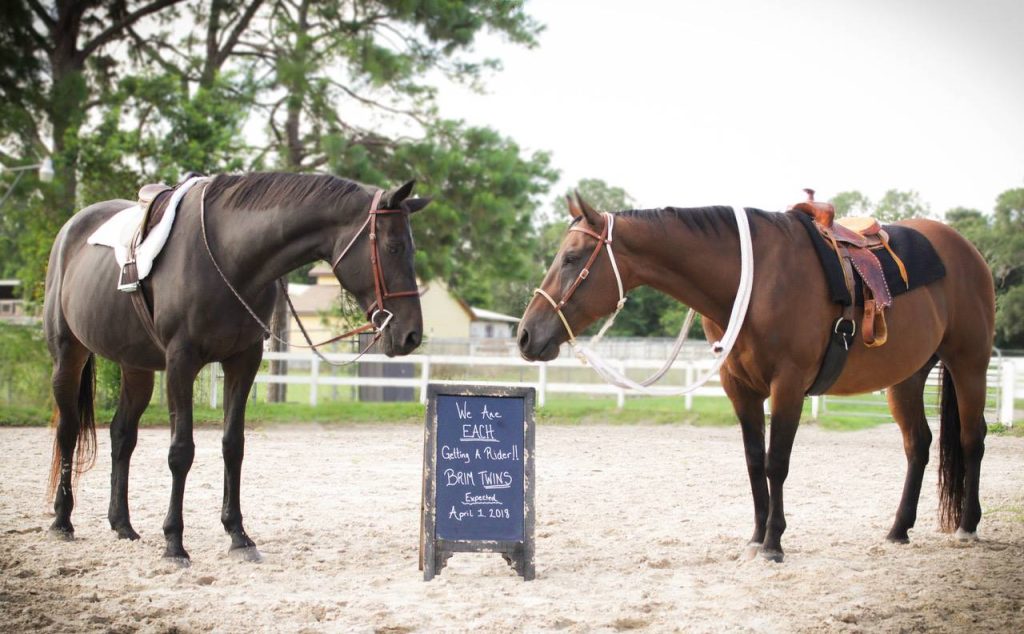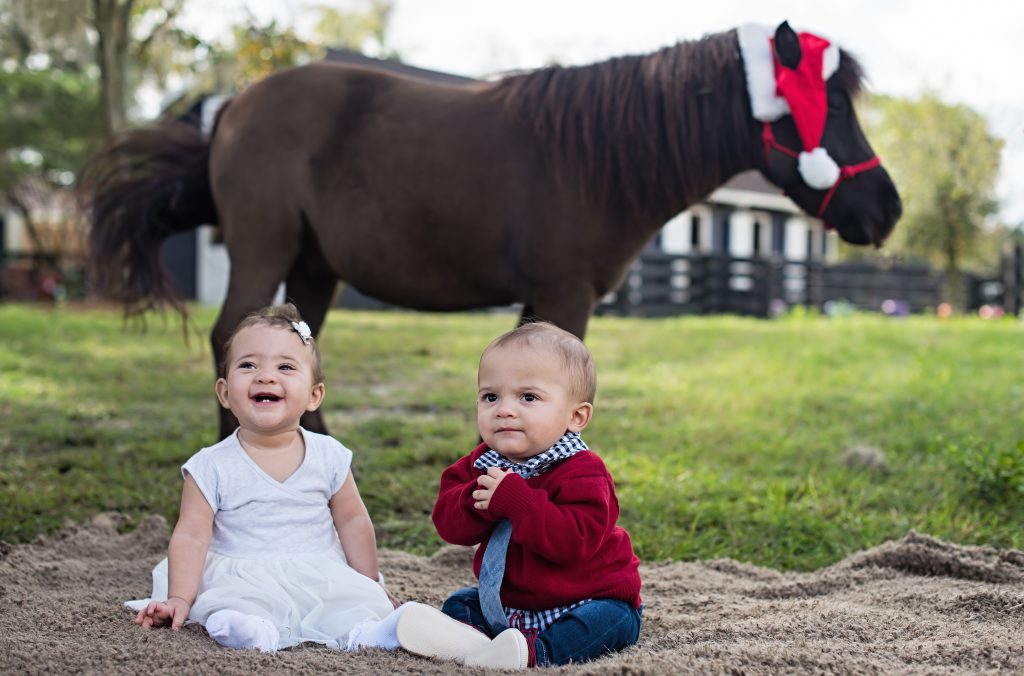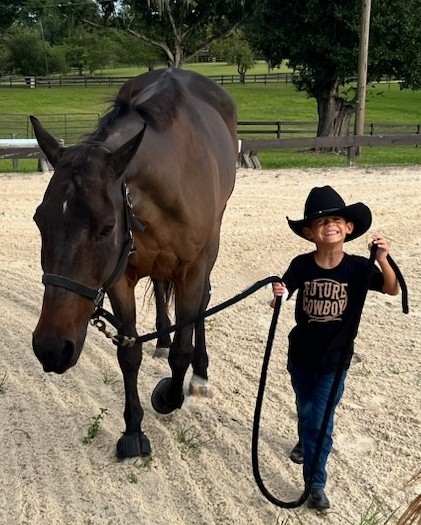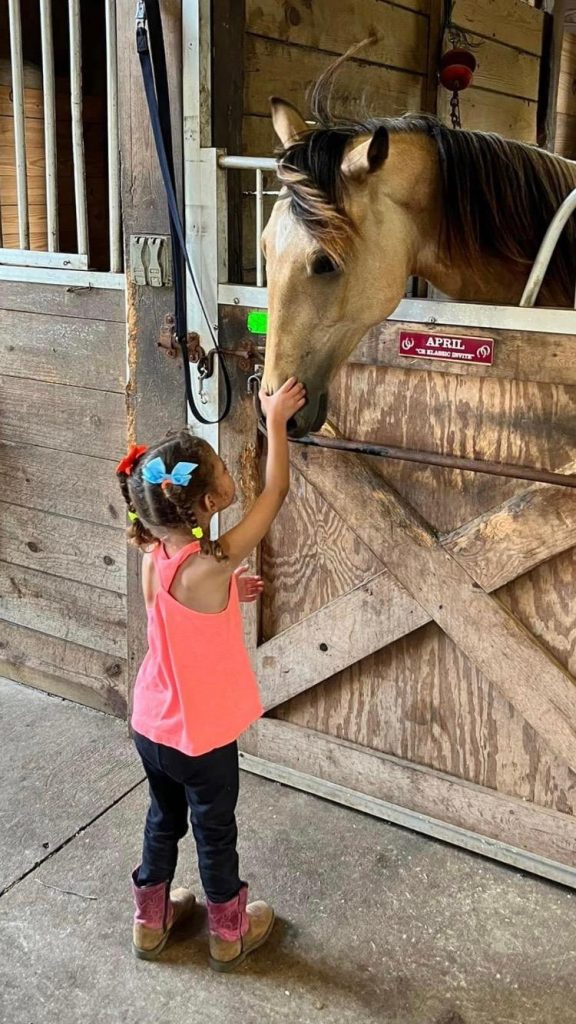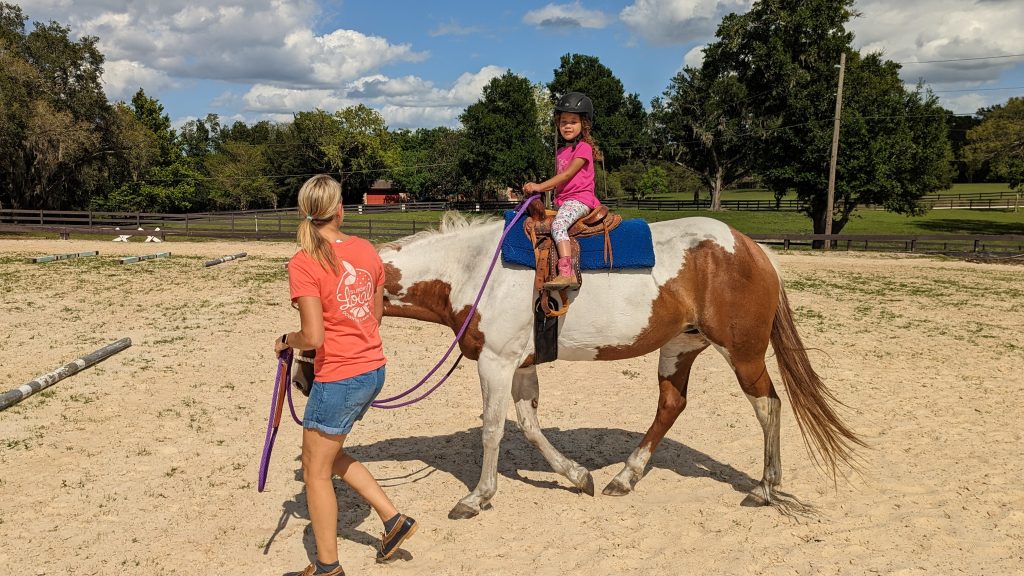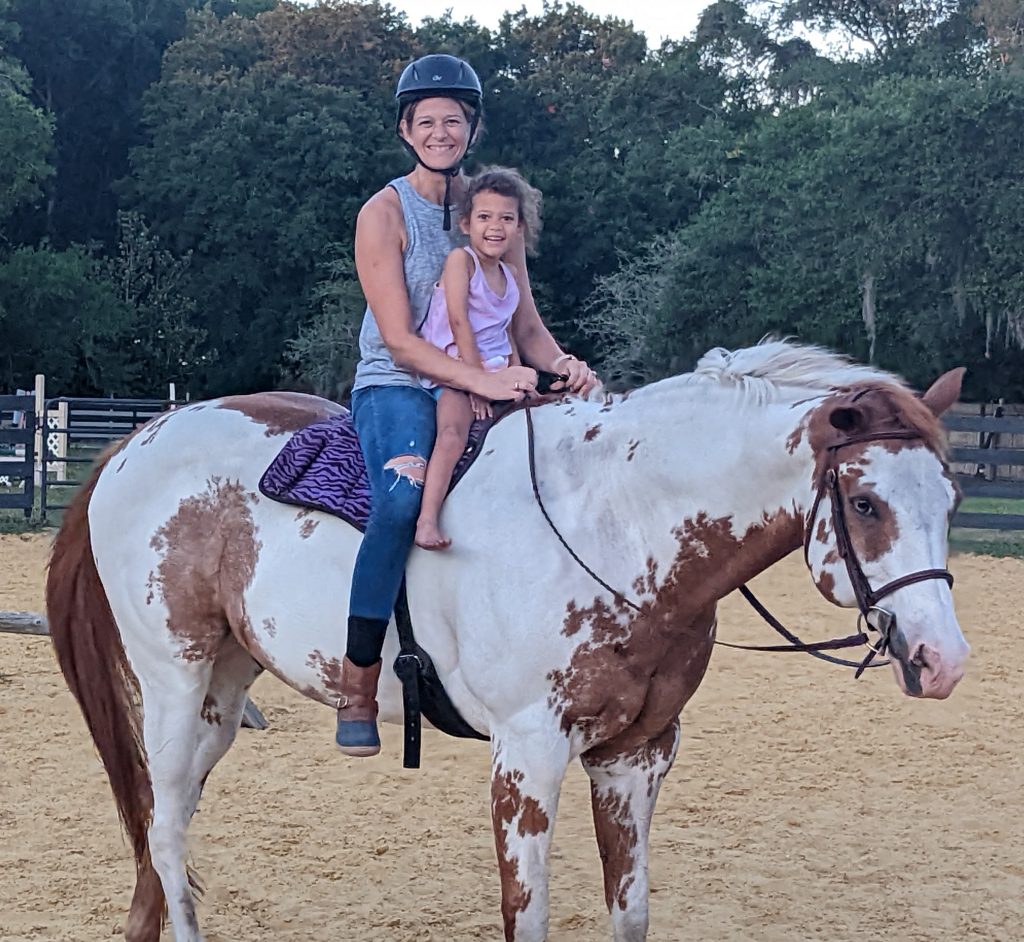Introducing Your Children to Horses: A Beginner’s Guide
Introducing your children to the world of horses can be one of the most rewarding experiences for both you and them. Not only does it foster a sense of responsibility and compassion, but it also provides a unique opportunity for physical activity and connection with nature. Our kiddos were introduced to horses at a very young age. In fact, we even utilized our horses in their birth announcement!
If you’re considering getting your kids involved with horses, here are some tips and best practices to ensure a smooth and enjoyable introduction.
1. Start with Education
Before even setting foot in a stable, it’s important for children to understand what caring for a horse entails. Use books, videos, and educational websites tailored to young audiences to teach them about horse behavior, care, and the basics of riding. This preliminary knowledge will make their first real-life interaction with horses less intimidating and more meaningful.
2. Visit Local Stables
One of the best ways to gauge your child’s interest and comfort level is by visiting local stables. Look for stables that offer barn tours and introductory classes for children. This allows them to see horses up close, observe how others interact with them, and understand the daily commitment required in caring for these animals.
3. Consider Lessons from Professionals
Once your child shows genuine interest, consider enrolling them in professional riding lessons. Start with a reputable instructor who has experience teaching children. They should focus not only on riding but also on horse care, safety, and proper handling techniques. Group lessons can be particularly beneficial as they also teach children about teamwork and sportsmanship.
4. Prioritize Safety
Safety is paramount when it comes to children and horses. Ensure that your child always wears appropriate safety gear, including a properly fitted helmet, boots with heels, and suitable riding attire. Additionally, teach them to always approach, handle, and ride horses under the supervision of an adult or a professional instructor.
5. Choose the Right Horse
Not all horses are suitable for children. When selecting a horse for your child to ride, consider factors like the horse’s age, temperament, and experience with young riders. Ponies are often ideal for beginners due to their smaller size and typically gentler nature.
6. Foster a Bond Between Child and Horse
Encourage your child to participate in grooming, feeding, and general care of the horse. These activities help build a bond between the child and the horse, which can enhance their riding experience. It also teaches responsibility and empathy as they learn to care for another living being.
7. Support Their Progress and Set Realistic Goals
As your child progresses in their riding skills, help them set achievable goals, whether it’s learning a new riding skill, participating in a local show, or simply improving their confidence around horses. Celebrate their successes and provide encouragement through challenges.
8. Make It a Family Affair
If possible, get involved with horses as a family. This could mean taking family riding lessons or volunteering at a local rescue center. Sharing the experience can make it more enjoyable for your child and can strengthen family bonds.
9. Attend Horse Shows and Events
Expose your child to the broader equestrian community by attending horse shows, competitions, and other events. This not only can be a fun outing but also allows them to see different breeds and styles of riding and to meet other horse enthusiasts.
10. Stay Committed and Patient
Like any new endeavor, learning to ride and care for horses takes time and commitment. Encourage your child to be patient and persistent. The skills they learn through horseback riding, such as discipline, patience, and resilience, are invaluable and will serve them well throughout their lives.
Conclusion
Introducing your child to horseback riding is not just about teaching them how to ride; it’s about instilling a sense of responsibility, fostering a connection with animals, and encouraging a healthy, active lifestyle. With the right approach, this introduction to horses can develop into a lifelong passion and provide lessons that extend far beyond the stable.
By following these tips, you can ensure that your child’s experience with horses is safe, educational, and immensely rewarding. Whether they pursue riding as a hobby or a competitive sport, the benefits of their equestrian journey will be evident in many aspects of their lives.

